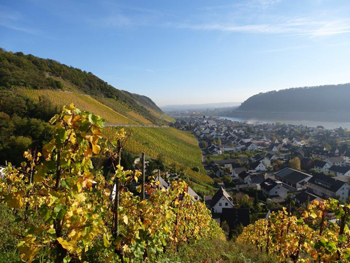Call for Membership: Planning & Governing the Metropolis
To establish an international academic working group (IAK) on
"Planning & Governing the Metropolis"
the ARL is currently looking for participants. The members of the working group will work for approximately three years together and address the topic and its sub-aspects both from inter- and transdisciplinary perspectives.
Background
Different processes of rescaling (up, down, trans-scaling) in the EU countries have multi-faceted im-pact to the metropolitan governance and planning institutions. There is a variety of institutional forms, planning practices and episodes manifested and experimented recently in the metropolitan regions of Europe, but there is a gap of knowledge about these structures and processes - both in academia and practice . Despite a diversity of books produced in the last few years on metropolitan governance issues pre-senting collections of case studies, there is no systematic comparison of factors that influence the institutional form of metropolitan governance, the success factors and the performance of metropol-itan governance and especially the role of metropolitan planning. Nowadays, a distinct set of problems and challenges for the metropolitan planning emerge. Included in these emerging hurdles are: non-regulated competition among municipalities to attract new in-vestments, new fragmentations and contradictions under fiscal and economic crisis, unprecedented external episodes, new environmental and demographic problems, uncontrolled migration and refu-gees flows, increased inequalities, social and territorial segregation, and new poverty in the cities. All these challenges reformulate new requirements for planning and development agendas at different scales.

 Die Leitung der Arbeitsgruppe wird Dr. Florian Weber (Hochschule Weihenstephan-Triesdorf) und Dr. Friedericke Weber (Naturpark Rhein-Westerwald) übertragen. Die ,Großschutzgebiete‘ Nationalparke, Biosphärenreservate und Naturparke haben bereits eine längere Tradition. Der erste Naturschutzpark entstand bereits Anfang des 20. Jahrhunderts aufgrund widerstreitender Nutzungsinteressen in der Lüneburger Heide. In den 1950er Jahre etablierte sich die Idee, Gebiete für Naturschutz und Erholung unter Schutz zu stellen und eine Welle von Naturpark-Gründungen folgte. In der öffentlichen Wahrnehmung sind Naturparke allerdings nur begrenzt präsent und bekannt. Deutlich anders gestaltet sich die Situation bei den beiden anderen Großschutzgebietskategorien. Während plakativ formuliert Naturparke jahrzehntelang tendenziell in einem ,Dornröschenschlaf‘ verharrten, gelten Biosphärenreservate und insbesondere Nationalparke häufig als Königsklasse der Großschutzgebiete.
Die Leitung der Arbeitsgruppe wird Dr. Florian Weber (Hochschule Weihenstephan-Triesdorf) und Dr. Friedericke Weber (Naturpark Rhein-Westerwald) übertragen. Die ,Großschutzgebiete‘ Nationalparke, Biosphärenreservate und Naturparke haben bereits eine längere Tradition. Der erste Naturschutzpark entstand bereits Anfang des 20. Jahrhunderts aufgrund widerstreitender Nutzungsinteressen in der Lüneburger Heide. In den 1950er Jahre etablierte sich die Idee, Gebiete für Naturschutz und Erholung unter Schutz zu stellen und eine Welle von Naturpark-Gründungen folgte. In der öffentlichen Wahrnehmung sind Naturparke allerdings nur begrenzt präsent und bekannt. Deutlich anders gestaltet sich die Situation bei den beiden anderen Großschutzgebietskategorien. Während plakativ formuliert Naturparke jahrzehntelang tendenziell in einem ,Dornröschenschlaf‘ verharrten, gelten Biosphärenreservate und insbesondere Nationalparke häufig als Königsklasse der Großschutzgebiete.

